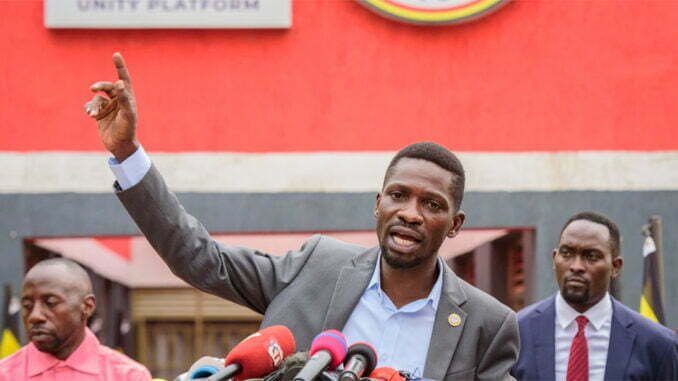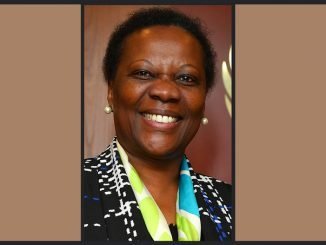
Kampala, Uganda | URN | The former National Unity Platform [NUP] party presidential candidate Robert Kyagulanyi Ssentamu alias Bobi Wine has formally applied to the Supreme Court asking to withdraw his presidential election petition.
His lawyers, led by Medard Lubega Sseggona filed the application on Wednesday 24, February 2021 morning asking leave to withdraw the petition as a whole.
Mr Kyagulanyi lists six reasons for withdrawing the petition that are supported with arguments in an affidavit of 22 paragraphs.
According to Bobi Wine, his witnesses are being abducted, tortured, harassed, and intimidated by state security operatives at the watch of President Yoweri Kaguta Museveni, and Attorney General, the first and third respondents to the presidential elections petition respectively.
He also argues that the organs of the state like the Uganda Police Force and National Identification of Registrations of Persons Authority [NIRA], are being used by the respondents to investigate and infringe on his privacy and that of his witnesses.
The musician-turned-politician [Bobi Wine] also alleges that the court has applied the rules governing the Presidential Election Petitions to his disadvantage. He cites the court’s decision rejecting his application to amending his pleadings.
“The petitioner’s application for extension of time for filing of additional affidavits was disallowed thus frustrating effective Prosecution of the petition,” reads the application.
On February 11th, 2021, a panel of nine Supreme Court Justices led by the Chief Justice Alfonse Owiny-Dollo granted Mr Kyagulanyi permission to bring additional affidavits not later than February 14, 2021.
But Bobi Wine, who wanted to bring about 200 affidavits, failed to meet the deadline citing unusual circumstances.
He said the unusual circumstances included the fact that his lawyers were operating mobile law firms due to insecurity and fear that state operatives may steal the evidence like the case was during the Amama Mbabazi Presidential Election Petition in 2016.
He also argued that state operatives seized their political party offices under the command of President Museveni and the Attorney General’s agents, which made it difficult for him to file relevant affidavits and evidence in support of his petition on time.
“The Petitioner lost time during the illegal house detention. But this honorable court is more inclined towards the strict timelines, which has disadvantaged the Petitioner to the disadvantage of the respondents,” reads the application in part.
In his affidavit supporting the application, Mr Kyagulanyi says the decision to withdraw the Petition has been influenced by the foregoing factors and not by any corrupt bargain or consideration from the respondents or any other person.
According to Section 20 Subsection 3 of the Presidential Elections Act, “an application for leave to withdraw a petition shall be supported by an affidavit of the Petitioner and his or her advocate, if any stating to the best of their knowledge and belief that no agreement or terms or of any kind has or have been made or undertaking made in relation to the petition or, if any lawful agreement has been made, stating the terms of the agreement.”
Mr Kyagulanyi’s application is supported by his own affidavit. The same laws also state that if the petition is withdrawn, the petitioner shall be liable to pay costs to the respondent.
The Supreme Court had earlier on scheduled the conferencing for Mr Kyagulanyi’s main presidential election petition on Wednesday 24th, February 2021. It’s unclear whether or not the conferencing will proceed with the new development.
Read Also: Big Election, Bigger Challenges: Bobi Wine withdraws election petition citing bias
The rules governing the presidential election petitions allow the court to substitute a petitioner once he loses interest. Unconfirmed reports indicate that former presidential candidate, John Katumba may take on the petition.
Mr Katumba could neither confirm nor deny the allegation, saying he is still studying the situation to inform his next move.
He promised to meet with our reporter to explain his position and next move. Mr Kyagulanyi ran to the Supreme Court challenging the election of the president, Mr Museveni saying the entire electoral process was marred by several illegalities such as voter bribery, intimidation, favoritism and arrests of his supporters among others.



